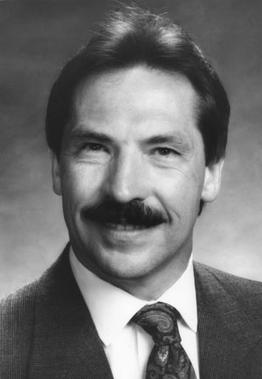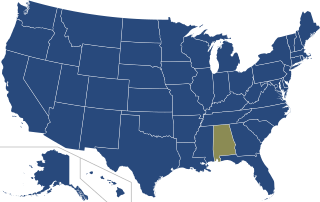
A pharmacist, also known as a chemist in Commonwealth English, is a healthcare professional who is knowledgeable about preparation, mechanism of action, clinical usage and legislation of medications in order to dispense them safely to the public and to provide consultancy services. A pharmacist also often serves as a primary care provider in the community and offers services, such as health screenings and immunizations.
A conflict of interest (COI) is a situation in which a person or organization is involved in multiple interests, financial or otherwise, and serving one interest could involve working against another. Typically, this relates to situations in which the personal interest of an individual or organization might adversely affect a duty owed to make decisions for the benefit of a third party.

Pharmacy is the science and practice of discovering, producing, preparing, dispensing, reviewing and monitoring medications, aiming to ensure the safe, effective, and affordable use of medicines. It is a miscellaneous science as it links health sciences with pharmaceutical sciences and natural sciences. The professional practice is becoming more clinically oriented as most of the drugs are now manufactured by pharmaceutical industries. Based on the setting, pharmacy practice is either classified as community or institutional pharmacy. Providing direct patient care in the community of institutional pharmacies is considered clinical pharmacy.
Forensic psychology is the application of scientific knowledge and methods to assist in answering legal questions that may arise in criminal, civil, contractual, or other judicial proceedings. Forensic psychology includes research on various psychology-law topics, such as: jury selection, reducing systemic racism in criminal law, eyewitness testimony, evaluating competency to stand trial, or assessing military veterans for service-connected disability compensation. The American Psychological Association's Specialty Guidelines for Forensic Psychologists reference several psychology sub-disciplines, such as: social, clinical, experimental, counseling, and neuropsychology.
A Doctor of Pharmacy is a professional doctorate in pharmacy. In some countries, it is a proficient graduate degree to practice the profession of pharmacy or to become a clinical pharmacist. In many countries, people with their Doctor of Pharmacy are allowed to practice independently and can prescribe drugs directly to patients. A PharmD program has significant experiential and/or clinical education components in introductory and advanced levels for the safe and effective use of drugs. Experiential education prepares graduates to be practice-ready, as they already have spent a significant amount of time training in areas of direct patient care and research.
Professional responsibility is a set of duties within the concept of professional ethics for those who exercise a unique set of knowledge and skill as professionals.
Virginia State Pharmacy Board v. Virginia Citizens Consumer Council, 425 U.S. 748 (1976), was a case in which the United States Supreme Court held that a state could not limit pharmacists' right to provide information about prescription drug prices. This was an important case in determining the application of the First Amendment to commercial speech.
The Washington State Bar Association (WSBA) is the state bar association of the U.S. state of Washington. It operates under the delegated authority of the Washington Supreme Court to license the state's nearly 41,000 active and inactive lawyers and other legal professionals. The WSBA's mission is to serve the public and the members of the Bar, to ensure the integrity of the legal profession, and to champion justice.

R. Tim Webster, SCD was a founder and long-time executive director of the American Society of Consultant Pharmacists (ASCP). He was born October 9, 1946, in Martins Ferry, Ohio and lived in St. Clairsville, Ohio until he graduated from high school. He received his degree in pharmacy from Ohio State University (OSU) in 1969 and then dedicated his entire career to promoting quality pharmaceutical care to the elderly. Prior to his 27-year tenure as executive director of the ASCP, he was involved in regulatory affairs relating to long-term care in both the public and private sector. He died of cancer on July 6, 2003.
A veterinary pharmacist is a specially trained pharmacist who dispenses veterinary drugs and supplies or products and advice to owners of companion animals and livestock. In addition, they advise the regulatory bodies and are involved in the formulation of veterinary drugs. Veterinary pharmacy is a field of pharmacy practice, in which veterinary pharmacists may compound medications, fill prescriptions, and manage drug therapies for animals. Veterinary pharmacists are licensed pharmacists who specialize in the distribution of medications for animals.
Pharmacy residency is education a pharmacist can pursue beyond the degree required for licensing as a pharmacist. A pharmacy residency program allows for the implementation of skill set and knowledge acquired in pharmacy school through interaction with the public either in a hospital setting or community practice. The program is done over a span of about 2yrs after graduation from pharmacy school and licensure as a pharmacist. Pharmacy residency helps improve the resume of a pharmacist so as to increase chances of obtaining employment outside community practice. A 2022 review suggested that there is sufficient evidence that residency develops key competencies for junior pharmacists.
The Minnesota State Bar Association is a voluntary bar association for the state of Minnesota, whose members include lawyers, judges, and other legal practitioners, such as clerks, registrars, and paralegals. The MSBA is one of the oldest state bar associations in the United States. Membership is not required to practice law in Minnesota.
Board certification is the process by which a physician, veterinarian, or other professional demonstrates a mastery of advanced knowledge and skills through written, oral, practical, or simulator-based testing.
Pharmacy in China involves the activities engaged in the preparation, standardization and dispensing of drugs, and its scope includes the cultivation of plants that are used as drugs, the synthesis of chemical compounds of medicinal value, and the analysis of medicinal agents. Pharmacists in China are responsible for the preparation of the dosage forms of drugs, such as tablets, capsules, and sterile solutions for injection. They compound physicians', dentists', and veterinarians' prescriptions for drugs. Pharmacological activities are also closely related to pharmacy in China.

A pharmacy is a premises which provides pharmaceutical drugs, among other products. At the pharmacy, a pharmacist oversees the fulfillment of medical prescriptions and is available to counsel patients about prescription and over-the-counter drugs or about health problems and wellness issues. A typical pharmacy would be in the commercial area of a community.
Bates v. State Bar of Arizona, 433 U.S. 350 (1977), was a United States Supreme Court case in which the Court upheld the right of lawyers to advertise their services. In holding that lawyer advertising was commercial speech entitled to protection under the First Amendment, the Court upset the tradition against advertising by lawyers, rejecting it as an antiquated rule of etiquette.
The Staatsexamen is a German government licensing examination that future physicians, dentists, physical therapists, teachers, research librarians, archivists, pharmacists, food chemists, psychotherapists and jurists as well as surveyors have to pass to be allowed to work in their profession. The examination is generally organized by government examination agencies which are under the authority of the responsible ministry. These agencies create examination commissions which consist of members of the examination agency, university professors and/or representatives from the professions. The Staatsexamina are both legally equivalent to a master's degree in the respective operating ranges.

The International Pharmaceutical Students' Federation (IPSF) is a non-governmental, non-political and non-religious organisation that represents pharmaceutical students, pharmacy students and recent graduates from all over the world. It was founded in 1949 and it is the oldest faculty-based student organisation. IPSF represents over 500,000 individuals in more than 100 countries with 127 different representative pharmacy student member organisations.

A collaborative practice agreement (CPA) is a legal document in the United States that establishes a legal relationship between clinical pharmacists and collaborating physicians that allows for pharmacists to participate in collaborative drug therapy management (CDTM).
The Society of Infectious Diseases Pharmacists (SIDP) is a non-profit organization comprising pharmacists and other allied health professionals specializing in infectious diseases and antimicrobial stewardship. According to the Board of Pharmaceutical Specialties, clinical pharmacists specializing in infectious diseases are trained in microbiology and pharmacology to develop, implement, and monitor drug regimens. These regimens incorporate the pharmacodynamics and pharmacokinetics of antimicrobials for patients.






